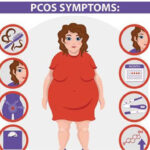The report released recently by the United Nations Children’s Fund (UNICEF) indicating the rising number of undernourished adolescent girls and women aged 15-49 years calls for concern. This is particularly so for Nigeria where, according to the report, the number soared from 5.6 million in 2018 to 7.3 million in 2021.
Nigeria was among the 12 hardest hit countries by the global food and nutrition crisis, the report also noted, stating that the situation is putting women and newborn babies at risk. Other countries representing the epicenter of the global nutrition crisis along with Nigeria include Afghanistan, Burkina Faso, Chad, Ethiopia, Kenya, Mali, Niger, Somalia, South Sudan, Sudan and Yemen. Most of these countries are dealing with one form of internal strife or the other.
The nutrition crisis has been increased by the recent impacts of COVID-19 and worsened by the war in Ukraine and ongoing drought, conflict, and instability in some countries largely due to the interconnectedness of the globe.
The report, entitled ‘Undernourished and Overlooked: A Global Nutrition Crisis in Adolescent Girls and Women’, was released ahead of the International Women’s Day which was celebrated on the 8th of March and also warned that the ongoing crises, aggravated by unending gender inequality, were deepening a nutrition crisis among adolescent girls and women that had already shown little improvement in the last two decades.
- Obi’s lawyers begin inspection of election materials
- Gov’ship polls: INEC completes BVAS re-configuration, begins deployment
In the case of Nigeria, specifically, the report notes that: “55 per cent of adolescent girls and women suffer from anaemia while nearly half of the Nigerian women of reproductive age do not consume the recommended diet of at least five out of 10 food groups (grains and tubers, pulses, nuts and seeds, dairy, meat, poultry and fish, eggs, dark green leafy vegetables, other vitamin A rich fruits and vegetables, other vegetables and other fruits) according to the 2022 National Food Consumption and Micronutrient survey.
“Inadequate nutrition during girls’ and women’s lives can lead to weakened immunity, poor cognitive development, and an increased risk of life-threatening complications – including during pregnancy and childbirth – risking mother’s lives, also, with dangerous and irreversible consequences for their children’s survival, growth, learning, and future earning capacity.”
For example, in Nigeria, 12 million children under 5 are stunted, meaning they are too short for their age due to malnutrition. Of those, about half become stunted during pregnancy and the first six months of life, the 500-day period when a child is fully dependent on maternal nutrition, according to a new analysis in the report.”
Commenting on the report, UNICEF Nigeria Country Representative, Cristian Munduate, said: “To ensure a better future for our children, we must prioritise the access of adolescent girls and women to nutritious food and essential nutrition services. The nutrition crisis is deepening among them, and urgent action is needed from all partners including the government of Nigeria and the international community. We cannot afford to overlook this crisis, and we must work together to transform food, health and social protection systems for adolescent girls and women.”
Indeed, harmful sociocultural practices, including the deliberate restriction of certain classes of food during pregnancy to prevent a large newborn and a difficult delivery, as well as prohibitions on eating certain nutritious foods during pregnancy to avoid perceived risks of poor pregnancy outcomes, also contribute to this problem.
Good nutrition is also vital during the pre/postpartum period. Mothers need diverse, nutritious diets and supplements to replenish body nutrient stores following pregnancy and meet the nutritional demands of breastfeeding. This is particularly important for those who are underweight, suffering from micronutrient deficiencies and/or anaemic.
While noting that some work had been done by the National Council on Nutrition under the leadership of Vice President Yemi Osinbajo, leading to a presidential directive for the establishment of nutrition departments in all relevant Ministries, Departments and Agencies (MDAs) of government, and the possible inclusion of nutrition-specific budget estimates in appropriation bills, a lot more still needs to be done.
We are, therefore, calling on governments at all levels – federal, state and local – to see this report by UNICEF as a call to action by renewing their commitment to end malnutrition in Nigeria. They should all make adequate provisions in their annual budgets to improving the production and use of locally available and affordable nutritious food products. The governments should also engage community and religious leaders to sensitize the people on the need for proper feeding as well as to counter messages of harmful practices with regard to nutrition intake during pregnancy.
Also very important, the government must tackle insecurity in areas most affected so that displaced farmers can return to their farms as their work contribute towards food security and better nutrition across the country.

 Join Daily Trust WhatsApp Community For Quick Access To News and Happenings Around You.
Join Daily Trust WhatsApp Community For Quick Access To News and Happenings Around You.


